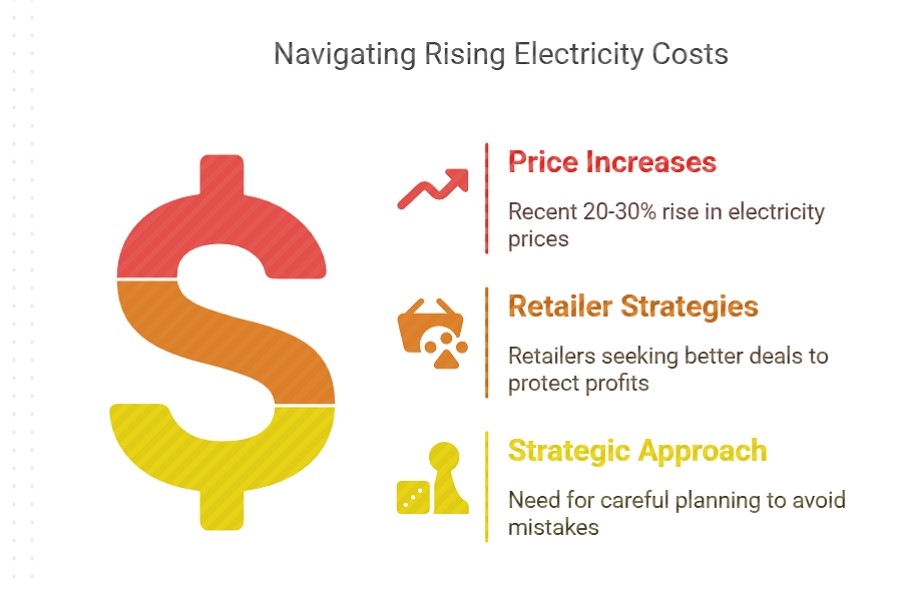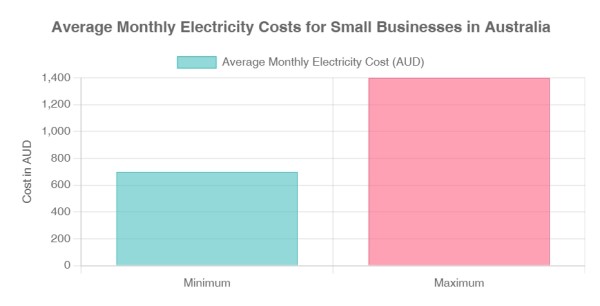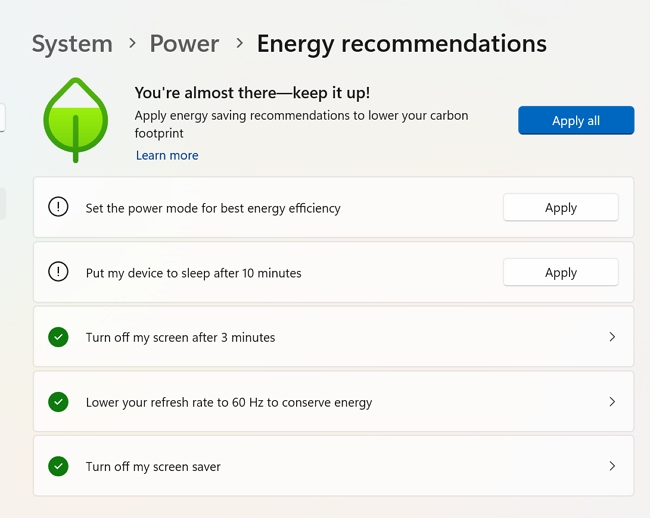Don't Get Burned with so-called electricity savings.

Electricity costs represent significant operational expenses for Australian retailers. Recent price increases, 20% to 30% across various regions, are bringing a shocker, and it's clear that more increases are coming. So many retailers are now actively seeking better deals to protect their bottom line. You need a strategic approach to avoid costly mistakes.
The Reality of Energy Agent Limitations
The electricity market is saturated with agents and brokers promising substantial savings for retailers. However, my recent experience revealed significant flaws in this approach here, The main reason I approached them was an industrial group, I was associated with recommended them. The prices were not better; they were higher. Yet the agent presented her figures as a cheaper rate. This experience highlights a fundamental issue: agents operate on commission structures that may not align with your best interests.
Government Comparison Website Inadequacies
While well-intentioned, Government energy comparison websites present challenges for retailers seeking accurate market information. My investigation into the Victorian Energy Compare website here. Significant discrepancies between displayed rates and actual provider quotes were revealed which when I contacted the provider directly, I found that they offered rates substantially better than those shown on the government platform.
This experience demonstrates that government comparison sites may not reflect real-time market conditions or the full range of available offers. The platforms work with standardised data that doesn't capture the dynamic nature of energy pricing or the flexibility providers have in direct customer negotiations.
Strategic Energy Approach
I am sorry, there is no way out of doing your research. An approach that works for me is to
1) Use government comparison sites as baseline information, but understand their limitations. My comparison website is here.
2) Select the best three offers and research their customer online satisfaction ratings. The reviews are readily available through Google. Narrow in on the ones that look good for your shortlist. I was left with two.
3) With the information, call your existing provider if you are happy with them, and those on your shortlist to see what they can do. Present your research findings professionally, highlighting competitive offers. I stayed with my provider even though they were slightly dearer on the new plan they offered, and I was happy with them
Conclusion
Rising electricity costs present ongoing challenges for Australian retailers, and we all know more are coming. Strategic energy procurement can deliver meaningful cost reductions.
Written by:

Bernard Zimmermann is the founding director at POS Solutions, a leading point-of-sale system company with 45 years of industry experience. He consults to various organisations, from small businesses to large retailers and government institutions. Bernard is passionate about helping companies optimise their operations through innovative POS technology and enabling seamless customer experiences through effective software solutions.






